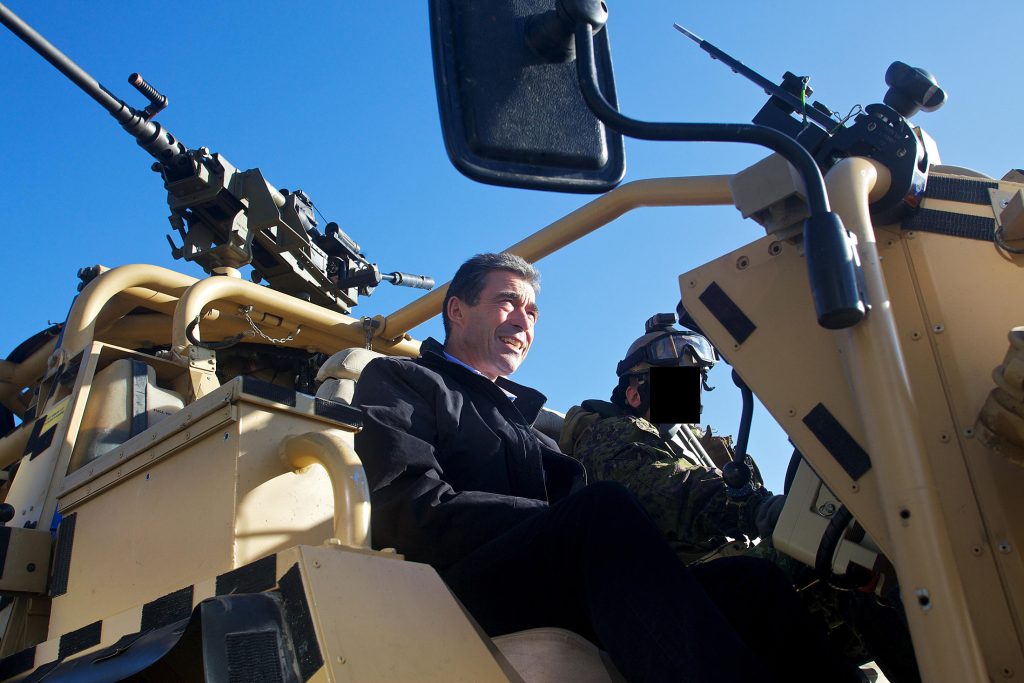
From J.L. Granatstein,the Ottowa Citizen: The budgetary chaos abroad and in Washington has clear implications for Canada. Thus far, the Harper government has maintained its support for the Canadian Forces, planning only the five- to 10-per-cent cuts that are to be visited on all departments and agencies as a deficit-fighting measure. But there are clear warning signs. The F-35 may be a wonderful aircraft, but if the British, Americans and Italians and others reduce their orders, the project might die or, at a minimum, face sharply increased per-aircraft costs.
The $9 billion Ottawa seems prepared to spend — even if almost no one except the defence minister really believes that figure — will skyrocket. If DND sticks to buying the F-35, therefore, other items will need to go. The big naval procurement plans, proudly announced a few weeks back, will certainly be slowed. So will the army’s Close Combat Vehicle project, the refurbishment of the Light Armored Vehicle fleet, and myriad other programs. Some informed sources have even suggested that the army’s nine infantry battalions might be reduced to six. And the government is cutting DND wherever it can, even slashing its small contribution to NATO’s AWACS fleet of airborne warning aircraft.
What all this means for the Canadian Forces and NATO seems clear. The Canadian Forces’ expeditionary capacity will be reduced, for if the U.S. and the U.K. are cutting their capacity, Canada certainly is not going to deploy its forces abroad on its own. The world does not look any more peaceful than it did a few years ago, but NATO’s ability, the United States’ ability, and the Canadian Forces’ ability — and willingness — to send troops abroad is decreasing. If the Libyan revolt had begun in 2013, say, rather than in 2011, the alliance’s capacity to deploy against Col. Moammar Gadhafi’s regime would have been limited indeed. As it was, the Royal Air Force, short of pilots and planes, could barely manage to play its part in Libya, and the Americans — for political as much as military reasons, to be sure — played a modest role after the first days.
NATO, in other words, is becoming a shell of its former self, a weak, financially wracked alliance that can do little now and even less in the near future. Perhaps it’s time for Canada, as it contemplates its own need to reduce defence spending, to begin asking if NATO still really matters.
Historian J.L. Granatstein is a senior research fellow at the Canadian Defence and Foreign Affairs Institute. (photo: NATO) (via Real Clear World)
Image: nato%2010%2013%2011%20Rasmussen%20Special%20Forces%20exercise.jpg
